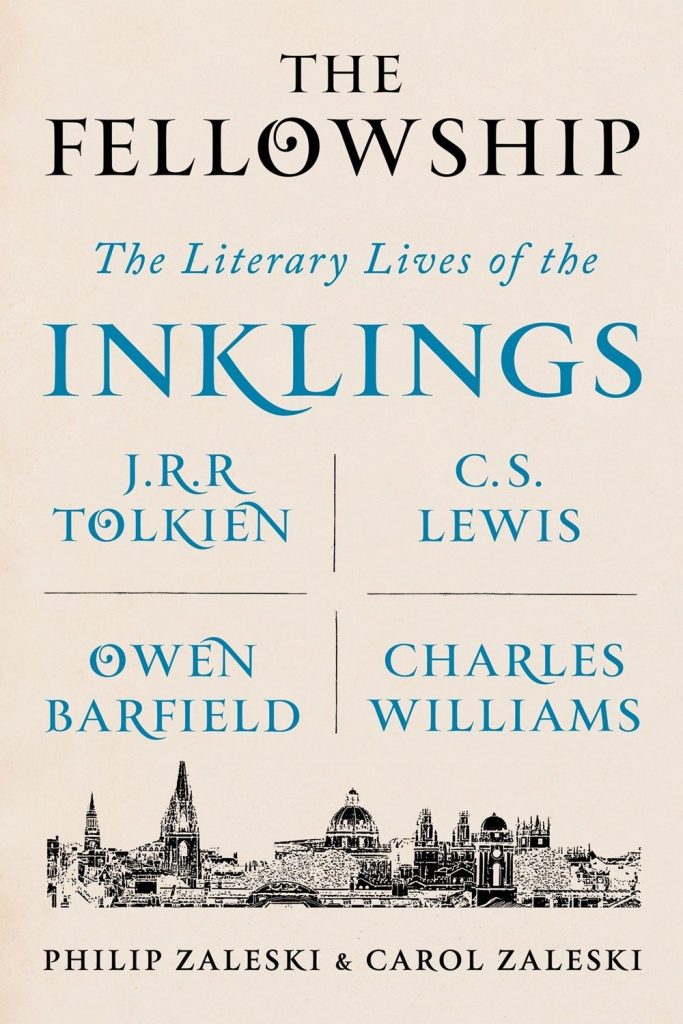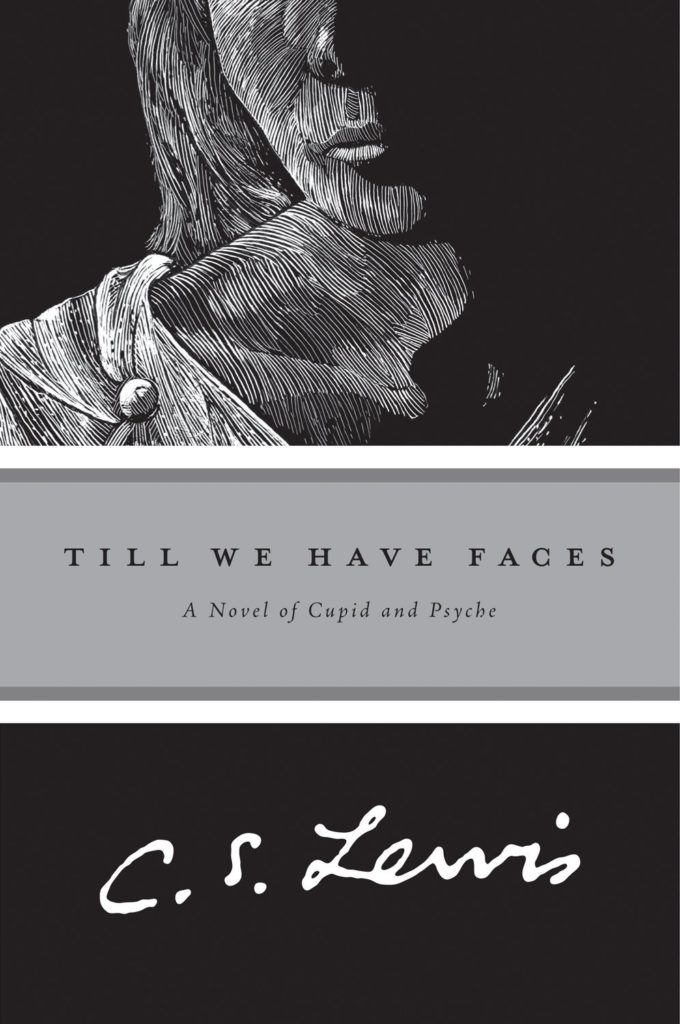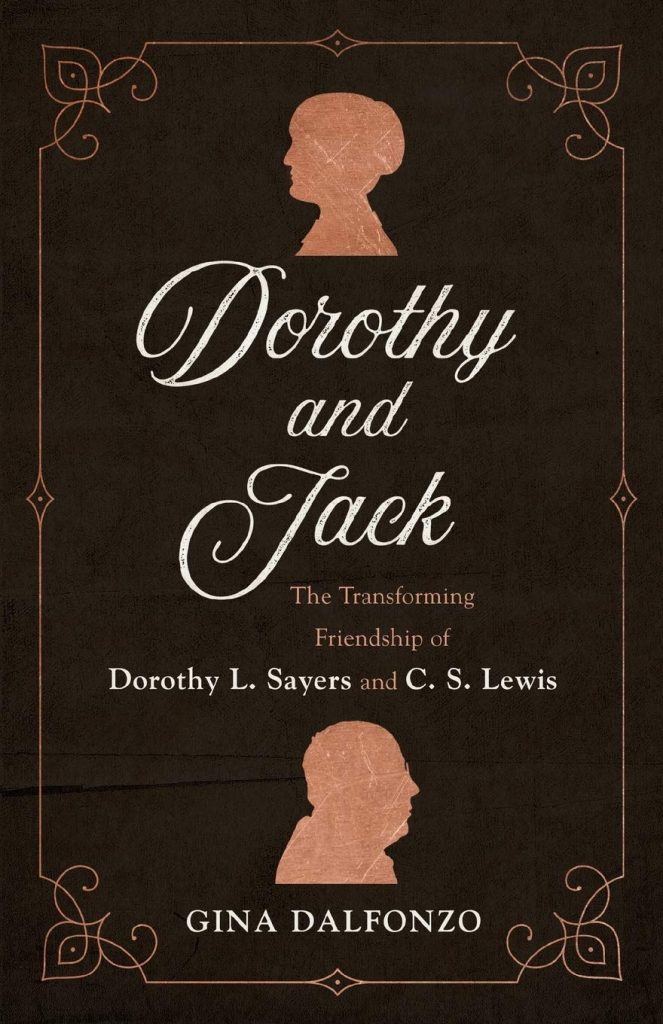Reading about the Inklings, Hayley and Megan discuss The Fellowship, an excellent book for Tolkien and Lewis enthusiasts.
The Fellowship: The Literary Lives of the Inklings: J.R.R. Tolkien, C. S. Lewis, Owen Barfield, Charles Williams by Philip Zaleski and Carol Zaleski. Farrar, Straus and Giroux, 2015. 656 pages.

Reading Level: Adult
Recommended For: Ages 16 and up
Two Friends and a Book
In the last year, Hayley and Megan have both enjoyed The Fellowship by Philip Zaleski and Carol Zaleski.
In true book lover fashion, Hayley started it first, last year, as an audiobook. She enjoyed it so much that, on hearing Megan was in need of an audiobook, she gave Megan an Audible copy.
Megan, being a proper reader, added her own print edition, too. But as Megan got into The Fellowship and wanted to talk, Hayley was busy in France and had lapsed on listening to her own copy.
Now, a year later, Hayley is listening again, and Megan is recalling her distant memories (2019, back in the normal days!).
Below, we discuss The Fellowship generally —what we liked and noticed —and what we think fellow Inklings lovers might enjoy.
Beyond the Big Names
Hayley: In The Fellowship, the Zaleskis focus not only on Lewis and Tolkien, from birth and childhood onward —but also on Owen Barfield and Charles Williams.
Megan: You know, I remember not being very impressed with Owen Barfield or Charles Williams —just being really annoyed with them! They were just kind of . . . weird, and I guess their literary legacies have not lived on.
Hayley: Yes. Going in, I knew Charles Williams had some odd writing, but I had always had the idea of Barfield as a quiet and orthodox Christian. The Zaleskis definitely brought both men to life —I understood more of Williams’ appeal to Lewis, yet understood even more why Tolkien might have disapproved of him at times. And as for Barfield —he was far from orthodox with his belief in Anthroposophy.
Megan: I didn’t like Charles Williams very much —I don’t know why Lewis did. I guess I miss something there . . . .
Long Chapters and Lord of the Rings
Megan: The book sections are so long! Listening to a chapter can take an hour.
Hayley: But the narrator is very good!
Megan: Some thoughts that came to my mind: realizing how very Catholic Lord of the Rings is —and how devoted Tolkien was that even Galadriel was a symbol or image of Mary: we Christians can see a lot of Truth and Story in that. I don’t know that I would have picked up so heavily on the Catholic symbolism in the Lord of the Rings —which prompts the question: how much does the author’s intent have to do with the reader’s experience?
Wartime Talks & The Problem of Pain
Hayley: In Chapter 13, the Zaleskis mention Lewis’s wartime talks. It seems like they dismiss Lewis’s Liar, Lord, Lunatic reasoning. My impression was “hold it there, what are you talking about?”
The narrative shifts from a more detached standpoint, and the Zaleskis seem almost lofty in pointing out Lewis’s prior logical disagreements with his own argument. It’s almost like they approved of him till the Wartime Talks and now he’s embarrassing them (much like he embarrassed Oxford and the academic world) by getting all popular let alone evangelical and passionate.

Megan: I’m in the part about the Problem of Pain, and I just realized how well that describes Orual’s dilemma. I’ve heard before that Till We Have Faces is a fictionalized version of The Four Loves, but Orual’s wrestling with the gods really brings out Lewis’ dilemma and how he believes God uses pain.
Now, I haven’t read Problem of Pain, but it seems to connect with the dilemma of Orual in Till We Have Faces.
A Variety of Work
Hayley: That’s one thing I love about The Fellowship, it introduces readers to so much of each author’s work. Book by book, essay by essay, with letters and poems and journals thrown in, we get to see each man’s developing work and opinions. It’s a great opportunity to make connections and dig deeper!
Megan: It was a fascinating introduction to their body of work. Frankly, it was encouraging that not all of their writing was very profound or popular! Even as it was received in different circles, I loved hearing about all the different types of readings that happened at the Inklings meetings. Warnie’s discussion of —what section of French history was it?
Hayley: Louis the Fourteenth?
Megan: —And the medical papers. . . It wasn’t all great literature. It wasn’t all even literature. Like when Lewis tried to write poetry and really didn’t succeed.
What I’ve really appreciated about Lewis’s books—I can’t think of anyone else who has written such a wide range of literary styles. He didn’t do picture books . . . but when it comes to literature, look how consistent he was. That doesn’t mean he always did it well, but he was consistent with his convictions! And thinking how those different stories came out of different seasons in his life —it’s interesting seeing how one book in its historical context leads to another.
It’s also interesting the marriages of these men. Tolkien was happily married and had children. Lewis was happily married —though briefly later in life. I believe Barfield was unhappy and Williams had too much interest in other women.
Summing it Up
Megan: I am utterly amazed by how many books Lewis could read. I mean, when he was sick, he was reading more than I could when I am well!
Tolkien: I admire the work he put into it [the LOTR] and the years. We have the finished book, but the amount of years and refining —it is amazing.
Hayley: I really liked the bigger picture of Oxford that The Fellowship gave —seeing Charles Williams and all his work with Oxford University Press. Seeing the power of a group: Warnie doing his obscure work about Louis the Fourteenth.
There’s the depth of looking at characters, following lives, tracing friendships and the interconnectedness of community. Like, Barfield and Lewis have this tension because Lewis doesn’t want to talk about that weird thing he [Barfield] believes in . . .
There’s depth and humor and personalities. This isn’t a dry book at all! It’s kind of a weighty book, you have to be in the mood to concentrate, but I love. . . if you are a creative person, listening to all this creativity and the exchange of ideas makes you understand the power of friendship and the importance of that.
More Books to Read

Hayley: For the kind of person who is getting excited by the sound of this book, what else would you recommend?
I would recommend Dorothy and Jack —another side of Lewis and friendship, and a faster read. (And it quotes The Fellowship!)
—If you really like Tolkien and learning about him, Birzer’s book on Tolkien and the Sanctifying Myth is very good.
And as I referenced in our latest newsletters, Douglas Gresham has only just spoken about his late brother, who was a manic schizophrenic, and Lewis dealt with all that, once he got involved with Joy. It shows a lot about Lewis that he doesn’t say a word, at all —that shows a depth of character and the fact there’s still more we are learning about Lewis, even today!
Megan: I’m curious to hear about Dorothy and Jack.
There’s also Bandersnatch by Diana Glyer; that’s on my list. Also, Andrew Peterson’s Adorning the Dark —it’s about the community of creativity, really.
Creative Community
That’s what Lewis and Tolkien were doing —not just having a place where they could read their writing, but also where they could struggle through it: where they encouraged each other and listened to each other. There was definitely a range of talents and abilities: not everyone becomes C. S. Lewis. Not everyone becomes Andrew Peterson! But just being committed to a creative community —how about that for alliteration??
It really makes me want to do that —I don’t know what I’d do without you and Betsy encouraging my writing. I would have given up long ago; it really does make a difference sharing your creative work with people and not burying it in a hole —so it can thrive.
We were not meant to do this alone. Even though Lewis was Anglican and Tolkien was Catholic —and the others were WAY out there!— I think their [Lewis and Tolkien’s] faith explains why their work is so much more powerful and enduring. They didn’t have a nebulous and weird doctrine they created for themselves. I think that’s what bothered me for Williams —he came up with his own hybrid religion and got a lot of followers. Barfield, too.
Lewis and Tolkien weren’t perfect, but they had Truth which made their stories so much more powerful.
Hayley: Being committed to creative community. I love how you put that!
And now readers, what do you think? What is your favorite book about Lewis, Tolkien, or the Inklings?
Related Reading From Redeemed Reader
- A Review: *Dorothy and Jack
- A Resource: Truth and Story
- A Reflection: Coming Soon: Adorning the Dark
We are participants in the Amazon LLC affiliate program; purchases you make through affiliate links like the one below may earn us a commission. Read more here.
Stay Up to Date!
Get the information you need to make wise choices about books for your children and teens.
Our weekly newsletter includes our latest reviews, related links from around the web, a featured book list, book trivia, and more. We never sell your information. You may unsubscribe at any time.
Support our writers and help keep Redeemed Reader ad-free by joining the Redeemed Reader Fellowship.
Stay Up to Date!
Get the information you need to make wise choices about books for your children and teens.
Our weekly newsletter includes our latest reviews, related links from around the web, a featured book list, book trivia, and more. We never sell your information. You may unsubscribe at any time.
We'd love to hear from you!
Our comments are now limited to our members (both Silver and Golden Key). Members, you just need to log in with your normal log-in credentials!
Not a member yet? You can join the Silver Key ($2.99/month) for a free 2-week trial. Cancel at any time. Find out more about membership here.
